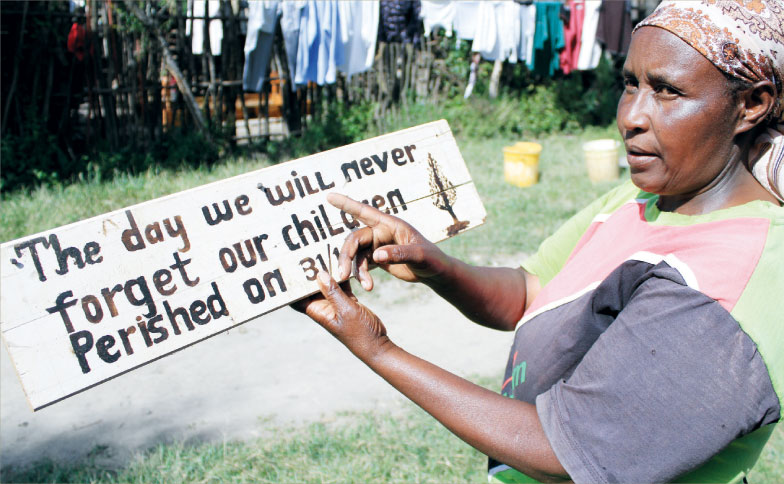×
The Standard e-Paper
Smart Minds Choose Us
 |
| Naomi Waithera holds a board that is a reminder of her four children who died in the tragedy. [PHOTOS: BONIFACE THUKU AND HENRY KWENA/ STANDARD] |
By KARANJA NJOROGE
Sachangwan, Kenya: Majority of Kenyans may have moved on after the Sachangwan oil tanker tragedy, but affected families are still traumatised.